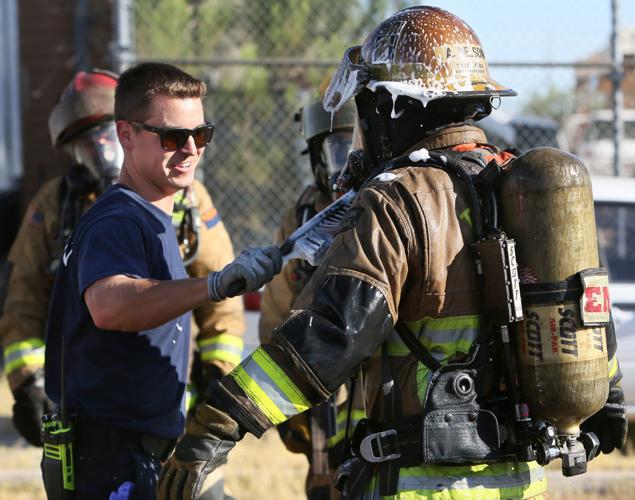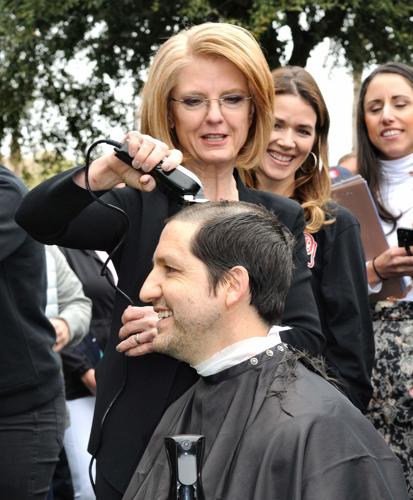PHOENIX — State lawmakers are looking to close a loophole in the law they say has allowed cities to deny workers’ compensation benefits to firefighters with cancer.
Sen. Heather Carter, R-Cave Creek, said a 2017 law was designed to ensure that any firefighter diagnosed with certain kinds of cancer got coverage for medical bills as well as a percentage of what they were earning. That was based on studies showing that firefighters, exposed to various chemicals, were more likely to get certain cancers.
Carter also said that measure, crafted by Sen. Paul Boyer, R-Phoenix, even included built-in protections for their employers. For example, it requires that a firefighters have been on the job for at least five years, started employment cancer free, and was diagnosed before age 65.
“We thought that we had an iron-clad policy in place,” she said.
Turns out, not so much, Carter said.
One big gap is the list of cancers that are presumed to be work-related did not include those normally associated with women, including breast and cervical cancer.
But the bigger problem, Carter said, is some cities still deny coverage, arguing the cancers that some of their firefighters were diagnosed with were not related to their jobs and therefore not compensable.
“Big government has unfortunately figured out a way to drive a firetruck through the loopholes in our legislative statute,” she said. And that, said Carter, forces firefighters to have to hire lawyers to get the benefits she believes they are due.
That “loophole” is a provision in the 2017 law that says the presumption a firefighter’s cancer is work related — and therefore entitles that person to workers’ compensation benefits — “may be rebutted by a preponderance of the evidence that there is a specific cause of the cancer other than an occupational exposure to a carcinogen.”
What that has done is allowed cities and fire districts to deny coverage, even to those with one of the listed cancers, by providing medical testimony arguing that an employee’s disease actually was caused by exposure to something outside of the job, or was due to some chemical to which the firefighter was not likely to have been exposed.
That, said Carter, is not fair.
This new proposal would spell out that if a firefighter was diagnosed with one of the listed cancers in the law, that provides “conclusive and irrefutable” evidence that the disease is work related. And that, in turn, ensures that workers’ compensation benefits are available.
And if that isn’t enough, Carter and Boyer are adding language to the statute to say that firefighters — or peace officers, for whom the law also applies — are not required to identify the specific carcinogen to which they were exposed “or to prove a causal link between the known carcinogen and their particular cancer.”
“We’re going to make it absolutely perfectly clear that our heroes will receive the benefits that they are due,” Carter said. “They will be able to spend their time fighting cancer, not fighting the government, not fighting lawyers, and not fighting their high-paid executives and high-paid medical experts.”
That, however, still leaves the question of cost.
Carter said she will support legislation to provide additional dollars to cities, towns and fire districts for “mitigation efforts.”
“That means helping them buy new equipment, helping them buy new uniforms, helping them figure out ways to keep our firefighters safe when they are exposed to the carcinogens that exist in a fire situation,” she said.
Boyer, for his part, said he hopes to set up a fund that all affected entities can tap if their insurance premiums or self-insured costs go up because of this measure. He estimated the cost at $20 million a year. Carter said she also is open to the idea of direct additional state dollars.





